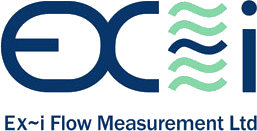As companies and national leaders look for ways to achieve zero carbon emissions by 2050, hydrogen is considered a viable alternative. Hydrogen can be produced using natural gas and carbon capture technology. Alternatively, renewable energy sources can produce electricity that powers water electrolysers. Both blue and green hydrogen could be considered to be better for the climate. Hydrogen can be used as a fuel for many industrial processes, from transportation to manufacturing, with minimal atmospheric emissions.
Hydrogen: the need for accurate measurements
Hydrogen is an expensive fuel. Current technologies and processes have yet to be refined, making the use of hydrogen desirable but with the cost perceived as prohibitive. Therefore, for companies using this fuel, it is essential that hydrogen is used efficiently and precisely.
Consequently, there is significant importance placed on the measurement of such fuel and its usage. For instance, many companies need an instrument to measure the flow of hydrogen for billing purposes. This accounting for fuel sold is a particular problem for the delivery of hydrogen to vehicles, as one specific example. Therefore, delivery pumps at service stations would need an effective flow measurement device. However, it is also an issue where both the home plant and a customer use hydrogen and accurate measurement of who used what in what process is essential.
Furthermore, when selecting a flow measurement meter, it is essential to take into account the potential for air to be sometimes present in hydrogen. If you are using a mass flow meter, then you need to calibrate the measurement for this possibility. Air is 14 times heavier than hydrogen, and without specialist calibration, the meter will read high. This inconsistency would make any flow meter selected inappropriate for accounting applications, as you would end up over-charging clients for the hydrogen delivered.
Other metrology issues
Other measurement challenges are facing those wishing to use hydrogen. First, the meter would likely need to be fitted within operational plants. Stopping production to fit or maintain such meters or take measurements would be seen as a significant problem. However, clamp-on meters would struggle to accurately and effectively measure hydrogen due to potential impurities.
Indeed, industry experts acknowledge there is a need for quality assurance and quality control processes in the delivery of hydrogen fuel. Samples need to be taken and analysed, and partners need validation that the fuels being delivered are up to a recognised standard. The issue of accurate sampling is a critical topic for discussion amongst specialists, who are aware that hydrogen can contain impurities such as water and air. Researchers are calling for metrology specialists to focus efforts on resolving such issues and providing a guide for good practice, as well as appropriate tools and techniques.
Questions to ask
Any guide on hydrogen flow measurement is going to present many more questions than answers. Indeed, researchers are continuing to explore the possibilities for hydrogen and the infrastructure requirements to make the roll-out of hydrogen fuel possible.
Ex~i Flow Measurement specialises in the manufacture of SFC3000 flow computers, which can be used for billing purposes and other applications. We would be happy to answer your questions. Contact us today to explore how we could help you accurately measure and control the efficient use of hydrogen.
